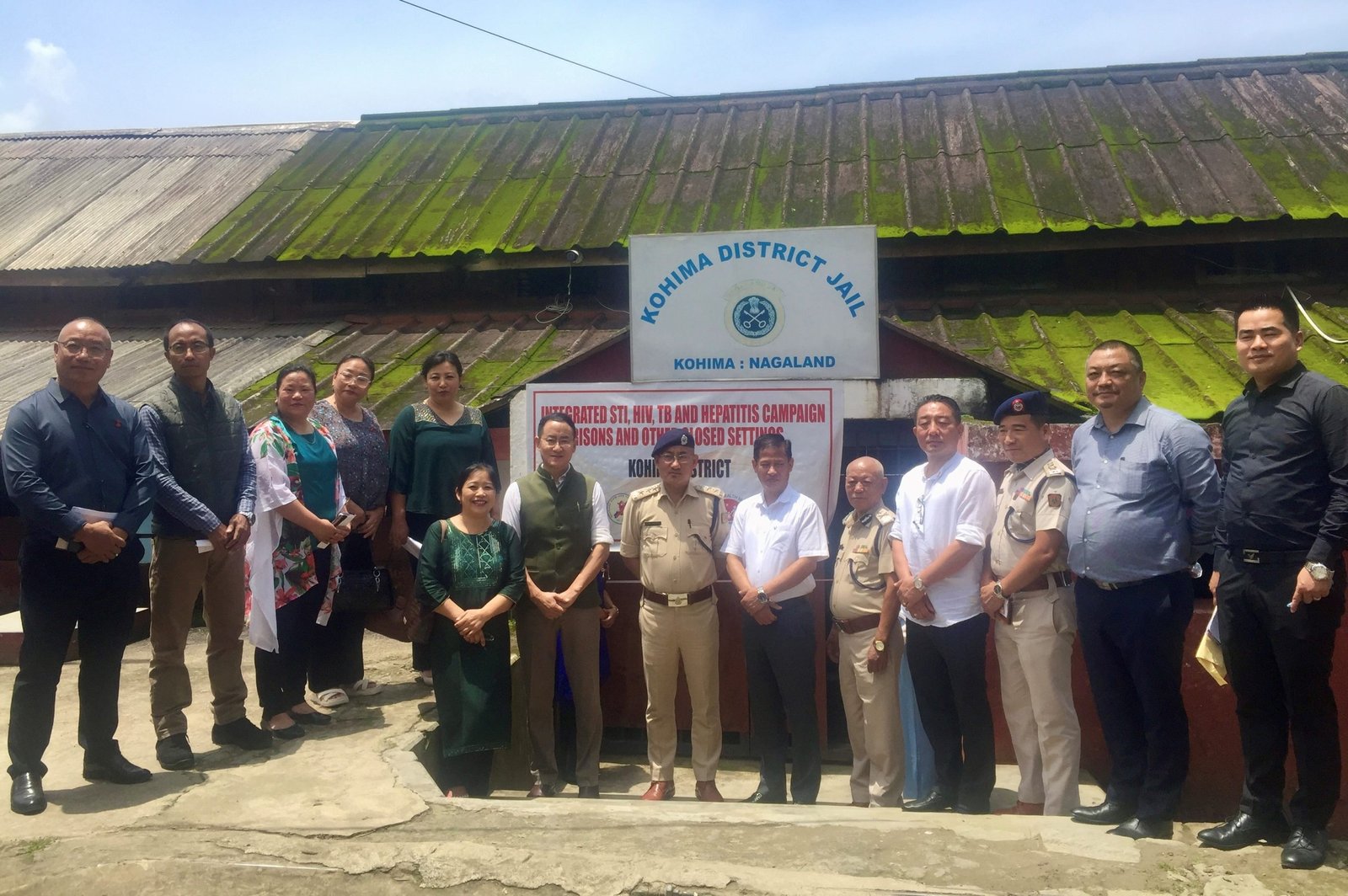A State-level Integrated STI, HIV, TB, Hepatitis (ISHTH) campaign in prison and other close settings (P&OCS) was launched today at the Director General of Prison Headquarter, Kohima, in a joint effort by the Department of Social Welfare and Nagaland State AIDS Control Society.
The campaign, launched with the goal of achieving an HIV-free India by 2023, aims to tackle the alarming spread of HIV in prisons and other closed settings across the country. The event saw the presence of Special Guest Renchamo P Kikon, IPS Director General of Prison, Nagaland, who emphasized the need for sustainability and sensitization in all concerned departments, including prison officials, social welfare, and medical departments, as well as the inmates.
In his address, Kikon emphasized the importance of sustainability and widespread sensitization about the campaign, not only among prison officials but also among departments such as Social Welfare and Medical Department, along with the inmates. He stressed the need for sensitization, training, and capacity building to effectively tackle the rising issue.
Highlighting the severity of the HIV epidemic, Kikon noted the high prevalence of HIV among drug users, particularly Intravenous drug users. He also drew attention to the prevalence rates of HIV in states like Punjab, Mizo, and Nagaland, and questioned whether the prohibition in these states could be correlated with increased drug abuse and HIV prevalence, calling for further research.
Addressing the challenges faced by the prison department in handling this issue, Kikon raised concerns about the lack of pharmacies in prisons and urged the authorities to deploy pharmacies in all prisons to better address the healthcare needs of inmates.
Download Nagaland Tribune app on Google Play

Dr. Bernice D Thapru, Jt. Director (Prevention) of Nagaland State AIDS Control Society, highlighted the gravity of the HIV epidemic in prisons and other closed settings, expressing worry over Nagaland’s position as the third-highest in prison prevalence in India. She shed light on the objectives of the campaign, aiming to assess the intensity of the problem in prisons and other close settings. She stated that the national objective is to strategize interventions and strengthen healthcare measures to ensure this vulnerable population is not left out.
Dr. Thapru outlined the campaign’s roadmap, which includes comprehensive health camps with basic testing facilities, general health services, and screening tests for HIV, Syphilis, TB, and Hepatitis. Post-linkage treatment will be provided to all clients diagnosed with any STI. Seven prisons have already initiated the campaign, and progress will be monitored through an app authorized by district supervisors, with evaluation support from NiTi Aayog.

The ISHTH campaign aims to identify the intensity of the epidemic and strategize on interventions to ensure that no segment of the population is left out. Other closed settings, such as Social Welfare facilities, will also be covered by the campaign, both governmental and privately-run.
The ISHTH campaign’s IEC materials were released by Renchamo P Kikon, while the program was chaired by Dr. Ahu Sekhose, Project Director, NSACS. Metevinuo Sakhrie, Jt. Director (IEC), NSACS, delivered the vote of thanks.
The launch of the campaign was well-attended, with officials from the Department of Prisons, Department of Social Welfare, and Nagaland State AIDS Control Society collaborating to combat the HIV epidemic and improve the overall health and well-being of inmates and individuals in closed settings.

